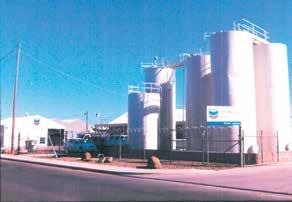
3 minute read
Sweet Potato Joe from page 1
from February 2023
the former Florence Cardoza of Merced in 1942.
By: Alvar Escriva-Bou, Ellen Hanak, Spencer Cole, and Josué MedellínAzuara, with research support from Annabelle Rosser, Public Policy Institute of California
Advertisement
Water challenges loom over California’s most important farming region
After the war, and during his life as a sweet potato farmer, he served as President of the California Sweet Potato Council, and US Sweet Potato Council, where he was a Director for over 20 years. He was the first California farmer to attend the National Sweet Potato Convention, among other industry firsts. Joe served as President of the Merced County Farm Bureau, and was on the Board of Directors of the Nisei Farmers League. He formed the California Sweet Potato Growers Co-op in Livingston, along with several other local growers, which is celebrating its 50th anniversary this year.
The San Joaquin Valley produces more than half of the state’s agricultural output, and it is an important contributor to the nation’s food supply. In terms of revenues, Fresno, Kern, and Tulare Counties are the nation’s top three agricultural counties. In 2018, about 4.5 million acres of cropland were irrigated in the region, using 16.1 million acrefeet (maf) of water. The valley is also home to significant dairy and beef industries.
Farming and related industries play an outsized role in the San Joaquin Valley’s economy, accounting for 14 percent of GDP, 17 percent of employment, and 19 percent of revenues. Valley agriculture employs around 340,000 people; its crops produce more than $24 billion in revenues, led by orchards and vines (almost $20 billion) and vegetables ($2.8 billion). Dairies and beef produce about $6.4 billion and $3.2 billion in revenues, respectively. A $34 billion food and beverage processing industry also relies directly on the valley’s crops. known as the “Voice of Livingston.” From 1946 to 1996, he announced all the Livingston High School football games, lending his strong voice to the community by also announcing everything in Livingston from parades to radio programs. He served on the Livingston Elementary School Board and the Merced County Recreation Commission for many years. Joe’s acting skills even benefited the Livingston Little Theater Group, where he starred in several productions, most notably as Elwood P. Dowd in “Harvey”.

Ensuring the economic and environmental sustainability of San Joaquin Valley agriculture is key for the region’s wellbeing, but this sector faces a future with less water for irrigation— an essential input. In 2019, we assessed the socioeconomic consequences of the transition to groundwater sustainability and other potential water supply constraints. Now, new data have enabled us to provide a
His interests and community involvement were very diversefrom serving as a founding member of the Livingston Medical Group, to past-President of Livingston Rotary, to being and booster for over fifty years. This led to his being appointed the third Area Commissioner of Baseball. All of these years of being involved in baseball in Livingston culminated in the community baseball field being renamed the “Joe F. Alvernaz Baseball Field,” something he was so proud of. more up-to-date analysis, and while our results are broadly consistent with the 2019 study, we assess water availability, overdraft, and the impact of the transition to groundwater sustainability at a much more granular scale than in any previous study. Fallowing will likely be greater than we initially estimated, unless growers are able to develop considerably more additional supplies.
The transition to sustainability will constrain farm water availability, leading to significant land fallowing
His love of baseball began at an early age and became a life-long interest that manifested itself into a devotion to the sport for over eighty years. He organized the first kid’s hardball team in Merced County in the early 50’s. He was particularly fond of American Legion Baseball, serving as a coach, sponsor, announcer
The Sustainable Groundwater Management Act (SGMA), enacted in 2014, is key to ensuring the San Joaquin Valley’s future as an agricultural region. The law requires local water users to form groundwater sustainability agencies and develop and implement groundwater sustainability plans to bring use to sustainable levels by the 2040s— basically by reducing water use and/or
Joe was predeceased by his parents, Joe and Mabel Alvernaz, brothers, Arthur and John Alvernaz, and sister, Mary Geyer. He was also predeceased by his oldest son, Joey Alvernaz, in 1980 and by his wife of 64 years, Florence, in 2007.
He is survived by five children, Judy Blevins, James (Colette) Alvernaz, and Benjamin (Debbie) Alvernaz of Livingston; Cecelia (James) Simon of San Diego, and Susan (Randall) Wilson of Mariposa, a sister, Cecelia Luker of Atwater, 17 grandchildren and 13 great grandchildren.






